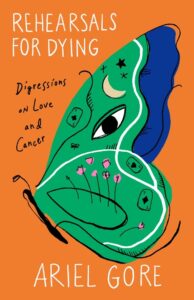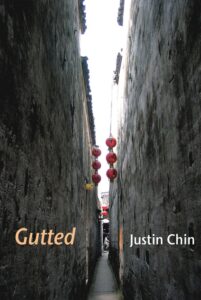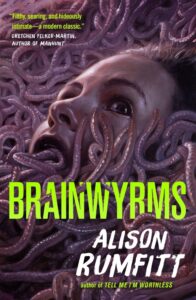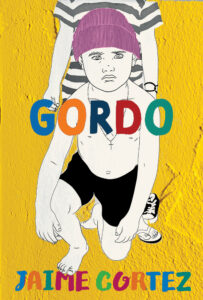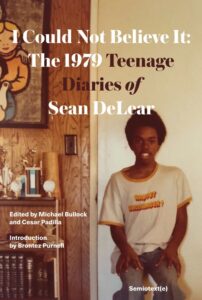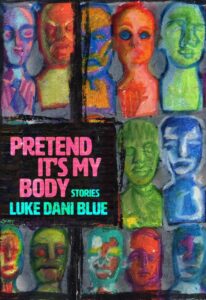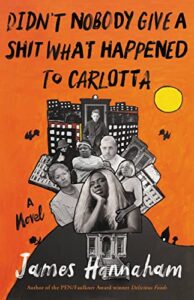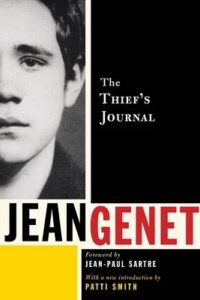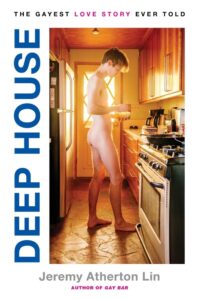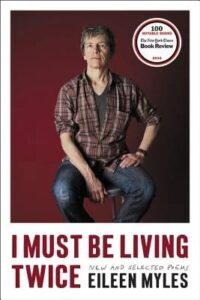
“I Feed on Queer Literature.” Michelle Tea on Her Ten Favorite Gay Books
“Why are so many people afraid of questions?”
Everything is coming up rainbow in the month of June, but my bookshelves are queer 365 days a year, gurl. I feed on queer literature—the permission they give me, mostly to just be myself, to push at the edges of my weirdness or outrage, to source the spots I’ve prettied-up for the world, often without realizing. Now more than ever, we need queer books like a kick in the face to the current onslaught of fascism: we have always been here, we will always be here, arguably we are just getting started.
The purity of queer consciousness: a space that prompts you to ask, why? Why have we thought there were only two genders? Why have we upheld dyadic marriage as the ultimate relationship structure? Why are so many people afraid of questions, and what should we do when that fear is weaponized at us? What have we done, historically? While I love reading the newest queer books—indeed, I have taken to publishing them; I haven’t listed any DOPAMINE titles here, because it seemed like cheating or something, but I urge you all to grab Clement Goldberg’s sexy rollick, New Mistakes; Vera Blossom’s Eve Babbitz-y How to Fuck Like a Girl, and Shawn Stewart Riff’s harrowing Days Running—I am also constantly re-reading books from our queer past, to remember how to live and keep queer ancestors alive. In honor of Valencia, the autofiction I wrote when I was 25 getting a 25th-anniversary edition, here are some queer titles that beg to be read and re-read, sparking new synapses every time.
*
Ariel Gore, Rehearsals for Dying: Digressions on Love and Cancer
(Amethyst Editions)
I was just thinking about how Ariel Gore is one of my favorite writers. The way she writes about her own queer life is ruthless, wry, clever, funny, guileless, sharp, spooky, so honest, so brutally simple. I always know I’m getting the wise truth from an Ariel Gore book, and who doesn’t want some wise truth on death? This book feels like it was written in real time, as the author’s beloved butch gets a fatal cancer diagnosis, and it keeps us, her readers, with her til the end. It’s stunning, and wrenching, and upsetting and funny. Also, putting ‘Digressions’ in your subtitle basically gives you permission to do whatever the fuck you want as a writer, very smart, Ariel Gore, I’m going to steal that.
Justin Chin, Gutted
(Manic D Press)
Justin Chin was a queer poet who was known for his live readings and performance texts. He died in 2015 in San Francisco, where he was known and loved by all for his outrageous, filthy, subversive and frequently hysterical work. I urge to familiarize yourself with his many books, especially during these stupid times, because Justin ‘s work was angry in a sort of exhausted way, and it is a very good weary and knowing companion to our moment. I recommend beginning with Gutted, which is so much about being an immigrant and living with HIV. If the world had put the same eye on the poetry scene of San Francisco in that era as they had on the Beats in the 50s (why didn’t they? Because everyone was so gay?), Justin would been our Ginsberg with the title poem, The Gutted, which shares what happen to the best minds of his generation. Though it feels icky to compare him to Ginsberg—who I love, actually—because Justin Chin is just better.
Alison Rumfitt, Brainwyrms
(Tor Nightfire)
Alison Rumfitt’s debut novel, Tell Me I’m Worthless, is one of my favorite of all times, and I was almost scared to read Brainwyrms, partly because she is a fucking terrifying writer and I knew the book would freak out my brain, and also because, like, what if she decided to do something different and the book is, like, a romcom or a western or something? But of course, it is called Brainwyrms, and it is not just about parasites it is about having a parasite fetish, and it is graphic, because why would you write such a book if you weren’t going to glory in how fucking gross it can get. It also uses parasitical infection as a metaphor for transphobia and TERF-ism, and the author indulges in whatever is the opposite of fan fiction is, giving some truly heinous scenes to an arch-villain clearly crafted after Jerk King Rowling. If you like to out a book down for a sec so you can metabolize the grotesque horror of what you just read, you’ll love Alison Rumfitt and you’ll love this book.
Jaimie Cortez, Gordo: Stories
(Grove)
If you need a mouthwash book to read after reading Brainwyrms (kind of like watching a Pee-wee Herman movie after some A24 horror), pick up this collection, which manages to be really fucking sweet, giving us all the tenderness and all the roughness of life for a queer, chubby kid in an immigrant farmworking community in California. The prose is so bright and zingy and strong, the kids’ dialogue is funny and spot-on, the various scenarios—fist-fights and immigration raids, true heartache and violent partners—are never sugar-coated, but the care with which the author handles it all fits such things into the warp and weft of life, a sort of accepting observation that resonates with childhood consciousness. With an insiders keen and, yeah, loving eye on it all, the author brings us the everyday life of a community that lives and works on the edges of American culture, and it’s harsh and beautiful, big as the world and no big thing, either.
Michael Bullock and Cesar Padilla (eds), intro by Brontez Purnell, I Could Not Believe It: The 1979 Teenage Diaries of Sean DeLear
(Semiotext(e))
I am currently in mid-scarf with this book, just inhaling the teenaged sexploits of this incredibly daring and self-knowing California teenager who kept a fantastic diary at the end of the 70s. In love with boys, trolling for cock in known cruising spots, yearning for a piano, taking acting lessons while he cuts out of high school—this kid is living his best life and he knows it. DeLear went on to be a queer, punk icon and glamorous queen of scenes high and low before dying too young of cancer in 2017. His diary is a gift. In an era full of sanitized YA, it’s grounding and inspiring to read what life was like for a real queer teen in the 70s, unabashed, sex-positive, confident, fearless and so fucking cute, cute like a little fifteen year old homo always is. A doc on DeLear’s life is premiering in Los Angeles this month and will surely make its way to you. Grab his diary and bone up (hehe) before you catch it.
Luke Dani Black, Pretend It’s My Body: Stories
(Amethyst Editions)
I love this uncanny, off-kilter literary exploration of what it means to transition or be dysphoric. Attacking the concepts with an edge of Black Mirror, youthful characters forgo the stress of a body altogether and upload themselves to a neural computer network, seek oblivion from sentient boulders. They suffer from telepathy. They adopt babies to further their dysfunctional ayahuasca scam. The final story, a long piece called Dogs of America, is all gritty Greyhound bus realness, tracking a downwardly spiraling young trans guy looking for a place to land in America, whispers of infamous violence all around him. What a great book!
James Hannaham, Didn’t Nobody Give a Shit What Happened to Carlotta
(Back Bay Books)
Is this perhaps the best book in the world? Carlotta Mercedes, a trans woman who transitioned in prison and, freshly sprung, has to get right to work keeping herself out of prison, a task that is waaaay more challenging than one without experience with incarceration would know, as the rules and expectations don’t line up with people’s lived and abilities at all. While Carlotta navigates her family and neighborhood while femme for the first time, she’s constantly but the tiniest fuck-up away from being locked up again, and the tenseness of this situation—paved over with the liveliest dialogue ever written full of slang and curses, patois and hilarity and desperation. This is a funny book about a serious subject—my fave—and it features one of the very best characters I’ve ever loved, Carlotta, and I happen to give a very serious shit what happened to her, from the electric first page til the last
Jean Genet, The Thief’s Journal
(Grove Press)
I don’t want to see a single Be Gay Do Crime sticker on your water bottle if you haven’t read The Thief’s Journal. I’m no Genet scholar, but I believe this is the most overtly truthful and straightforward book the icon ever penned, about his time as a military deserter sneaking across the borders of Europe, doing drugs, doing crime, and being criminally, gayly sexual with gay criminals. As in, ‘We very quickly decided to leave after robbing the gentleman. We were were to go to Poland where Michaelis knew some counterfeiters . . . I had been the beloved of so beautiful a bird of prey, a miscreant of the finest breed . . . ‘ Throughout it all, the prose – murky, then transcendent, poetic and hallucinogenic and psychological.
Jeremy Atherton Lin, Deep House: The Gayest Love Story Ever Told
(Little Brown and Company)
I love love loved Jeremy’s first book, the acclaimed Gay Bar, wherein he mashed up his personal experience of gay bars and nightlife with his adorable lover/sidekick Famous with a larger history about queer spaces and place. Now he is bringing the same treatment to a deeper telling of he and Famous—addressed here only as ’You,’ making the whole book as intimate as a love letter—their coming together and ultimate marriage in spite of American and British homophobia and immigration hardships. Jeremy weaves the tales of other star-crossed cross-cultural queer lovers throughout, as well as the political debates occurring apace their courtship, all of it set across a very 90s cultural landscape in cities like San Francisco and London, which were enjoying a grungy, queer boom. So many stories to juggle and Jeremy, who is such a great writer, does it expertly, detached enough to lay it all out for us like cinema, close enough to let us feel the hearts in these two young lovers.
Eileen Myles, I Must Be Living Twice: New and Selected Poems
(Ecco)
Can I have a book list without an Eileen Myles book? Nope, I cannot. I was so happy when this came out, because I had lost track of my copy of Not Me, which is tragic, because it was what I was reading the entire time I was writing Valencia, like reading reading finishing starting over reading reading etc you get it. It spoke to my pained feelings about my breakup with ‘Iris’, my love for her, etc., that I actually outlined a million passages from it with a yellow highlighter I’d stolen from work, till the whole book was exploded and shot-through with glowing, damp ink. Sigh. But now I have this collection, which is fantastic and contains poems by Eileen from 1975 til 2014, when it was published alongside a new release of Chelsea Girls. Eileen’s books are like holy books to me and this makes me want to do a bibliomancy divination with it right now as I write this. Eileen is, of course, a deeply spiritual writer and thinker, deeply philosophical and wild-minded, and what with poetry being so great for divination, their poems in particular land well. Here we go. What does the consciousness of this Eileen Myles collection want us to meditate upon? ‘The lines are designs for something real, how much space around the slender bars I bend and shape in the name of my world. ‘From ‘The Poet,’ Maxfield Parish, 1995.
_________________________
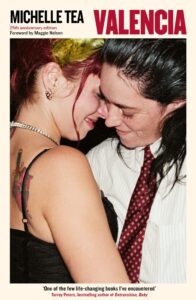
Michelle Tea’s Valencia, with a foreword by Maggie Nelson, is available now from Serpent’s Tail.
Michelle Tea
Michelle Tea is the author of over a dozen books, including Modern Tarot, Knocking Myself Up, and Against Memoir. She is the founder and former executive director of the literary nonprofit RADAR Productions, where she pioneered the first Drag Queen Story Hour. Valencia received the Lambda Literary Award for Best Lesbian Fiction and was adapted into a feature film.









